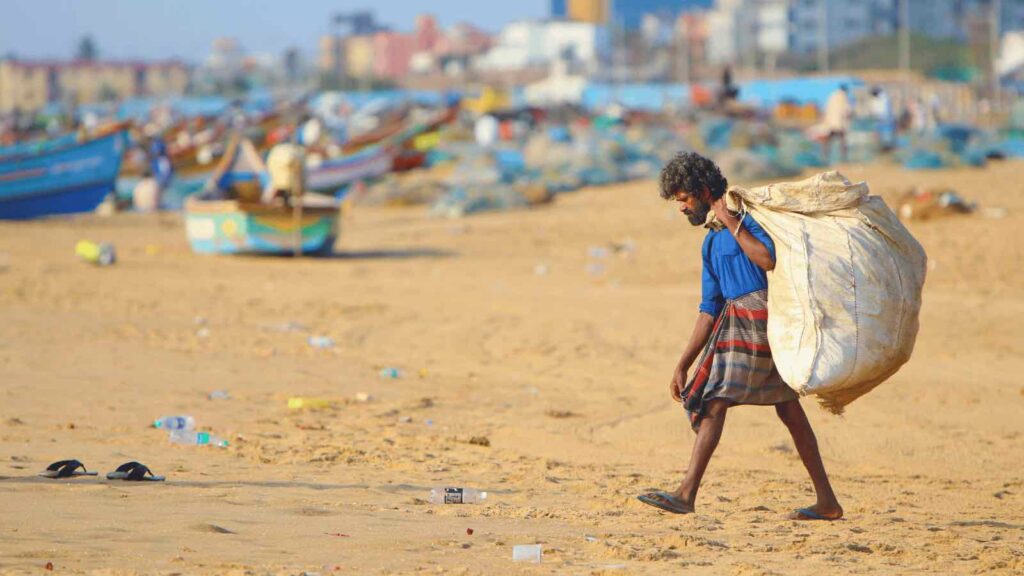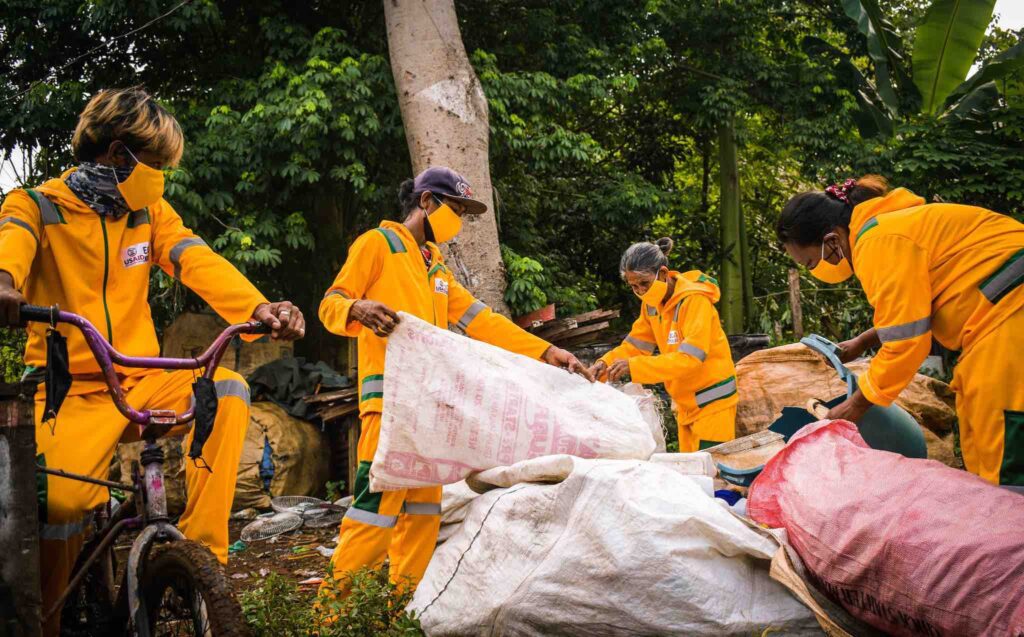Shockingly, the toil of these uncelebrated heroes of sustainability unfolds without the safeguard of proper gear or equipment, posing grave risks to their health.
From the bustling streets of Jakarta to the chaotic alleys of Mumbai and the vibrant neighborhoods of Manila, waste collectors are the unseen heroes of our society. Known as ‘Pemulung’ in Indonesia, ‘Kachra Wala’ in India, and ‘Basurero’ in the Philippines, these resilient workers shoulder the daunting responsibility of maintaining public health and promoting circular economy principles. Their labor, however, often goes unnoticed and underappreciated. This in-depth exploration offers a window into their challenging world, emphasizing the urgent need for change.
RELEVANT SUSTAINABLE GOALS
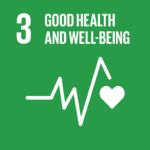
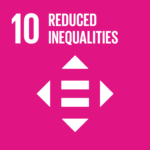

The Hidden Dangers of Waste Collection
In developing nations, waste collection involves much more than simply picking up household garbage. These diligent workers handle dangerous materials including medical waste, deceased animals, and sanitary waste, all frequently mixed with regular trash. The lack of appropriate safety gear adds a layer of health risk to their already strenuous roles.
Beyond their primary duty of waste management, waste collectors in emerging economies are burdened with additional responsibilities. From cleaning areas of open defecation to unclogging garbage-filled drains, their job scopes are stretched, often without additional compensation or societal respect.
Unfortunately, despite their crucial role in urban hygiene and waste management, waste collectors’ welfare is rarely a priority. Coming from lower socio-economic backgrounds, they are easily marginalized and undervalued, their invaluable contributions to society largely unrecognized.
Driving Change for Waste Collectors
While the current scenario paints a grim picture, acknowledging these issues is the first step towards transformative change. By advocating for their rights, pushing for safer working conditions, and championing fair wages, we can create an environment that respects and appreciates their work.
Empowering Waste Collectors Through the Eco-Kolek Program – Philippines
Often working in the shadows, women comprise a large segment of the informal waste collectors around the globe. In the Philippines, it’s not uncommon for women to engage in waste collection to provide additional income for their families. Puerto Princesa stands as a beacon of change, with women taking up many leadership roles in waste management.
This is more than just waste collection – it’s about embracing responsibility and becoming active, vocal community leaders. Through a progressive initiative called Eco-Kolek, these Eco-Warriors not only earn an income but also acquire relevant skills such as bookkeeping.
The Eco-Kolek program, launched to counter the rising tide of plastic pollution in Puerto Princesa, has helped transform the job of waste collecting into a respected profession. It educates these Eco-Warriors about waste disposal laws and safe methods of solid waste disposal, bringing organization and safety to a job that’s often overlooked.
Eco-Kolek’s overarching aim is to reduce ocean plastic pollution by improving the efficiency and sustainability of waste collection practices in Puerto Princesa. By professionalizing this crucial role, the program empowers local waste collectors, providing them with the tools to make a meaningful impact on their community and the environment at large.
Buang Disini’s “Pemulih Bumi” Initiative
In Indonesia, a ground-breaking circular economy startup named Buang Disini is taking notable strides toward empowering these indispensable workers. Their innovative initiative, known as #PemulihBumi, acknowledges waste pickers as crucial change-makers in the drive towards a circular economy and a sustainable future.
The #PemulihBumi initiative seeks to provide more than just recognition. It offers tangible support, including access to health check-ups and training in critical thinking, empowering these workers with the knowledge and skills to improve their economic standing and bolster a #CircularEconomy.
Harnessing the power of technology, Buang Disini is crafting a platform that enables waste pickers to derive a decent income from their labor while encouraging responsible waste management practices. The ultimate goal is to foster a more sustainable future where everyone plays their part in preserving our planet.
A Beacon of Sustainable Practices: Solid Waste Management Round Table, Bengaluru-India
Moving beyond Southeast Asia, there are myriad inspirational examples of organizations striving for improved conditions for waste collectors. One such organization is the Solid Waste Management Round Table (SWMRT) in Bengaluru, India. Established in 2009, this collective is a shining beacon of sustainability, pioneering the adoption of sustainable waste management practices for the betterment of public health, the environment, and inclusive livelihoods of the informal sector in recycling.
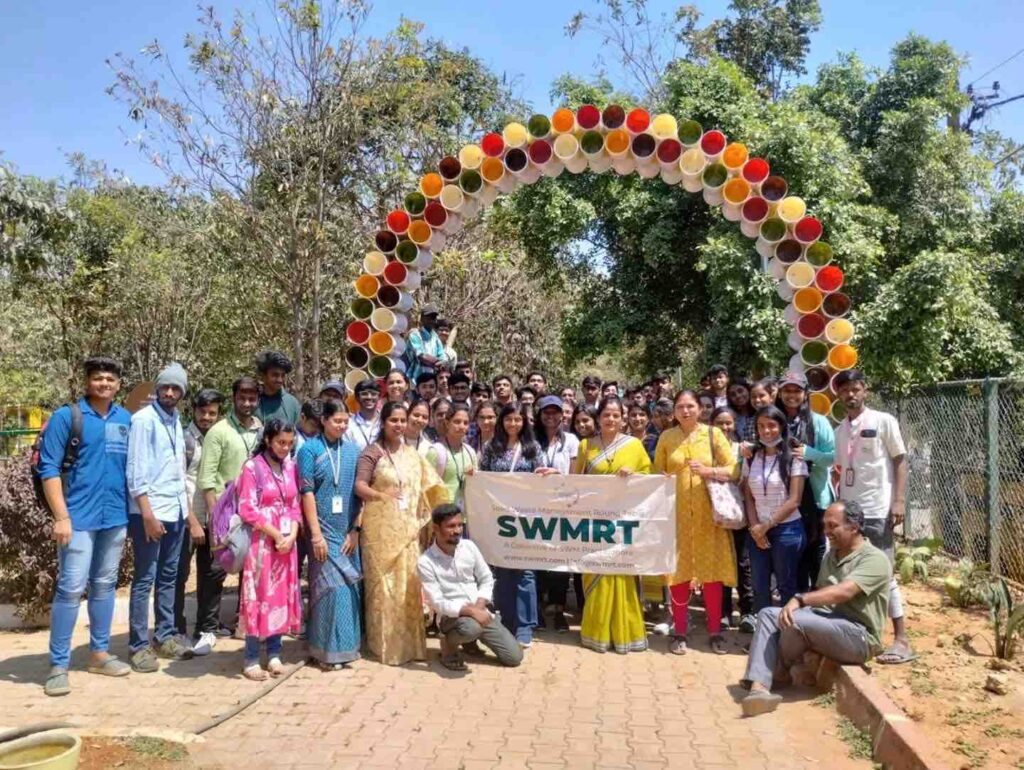
The mission of SWMRT is to transition into a low-waste world, powered by the principles of a circular economy and decentralized sustainable waste management practices. They aim to bridge the gap between communities, industry, institutions, governments, and both formal and informal waste workers.


